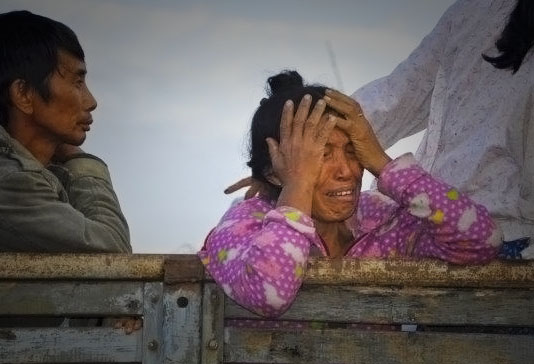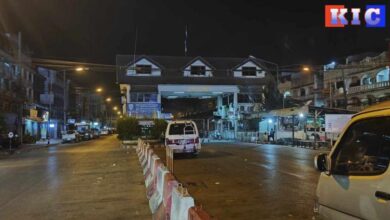‘Reformed Burma’ Marred by Atrocities

Even as Burma opens up to the world under President Thein Sein’s nominally civilian government, serious human rights abuses continue to occur, including sexual violence, extra-judicial killings and illegal arrest, says rights groups.
On the first day of May 2012, ‘Ngwa Mi’ (not her real name), 48, hid alone in a church in the Kachin Town of Pang Wa, on the China-Burma border.
Villagers had heard that a Burma Army patrol was approaching; most had already fled. When the patrol did enter the town shortly afterwards, ‘Ngwa Mi’ was discovered.
She was stripped naked by a group of about ten soldiers, beaten, stabbed and gang-raped over the next three days.
‘Ngwa Mi,’ who was found semi-conscious, survived, but the ordeal drove her insane.
Horrific cases of brutal sexual violence committed by the Burma Army, notably in Kachin State and northern Shan State – areas of current conflict – continue to be documented in spite of a nominally civilian, reformist government’s moves to open up the country, including to lucrative foreign investment projects and tourism dollars.
A report by the Women’s League of Burma (WLB) released in January this year confirmed that the Burma Army raped over 100 women since the 2010 election propelled Thein Sein’s current government into power – 47 of them were gang-raped, while close to a third of the women – 28 – were either killed or later died of their injuries. ‘Ngwa Mi’ was one of the women in the report.
“The government is not meeting its responsibility to prevent human rights violations against ethnic minorities and others,” Andrea Gittleman, Senior Legislative Counsel for Physicians for Human Rights (PHR), said in an email interview with Karen News, “human rights violations against ethnic minorities highlights the fact that democratic reforms have not yet reached ethnic communities.”
She added, “If the government of Burma does not effectively implement fair and transparent accountability mechanisms and the institutional reforms necessary to address violence against ethnic groups, then larger political reforms cannot truly take hold.
In their 2014 world report, Human Rights Watch criticized Burma’s government for overseeing brutal human rights violations in ethnic areas last year, despite the conclusion of ceasefire agreements with 15 ethnic ceasefire groups.
Burma’s government was able to reach a preliminary ceasefire agreement with the Kachin Independence Army (KIA), momentarily halting a two-year long war that had left around 80,000 Kachin displaced, but reports of Burma Army abuses persist following this agreement, with the conflict also spreading to Northern Shan State.
“Humanitarian access to IDPs has been uneven and insufficient, with some local Burmese army commanders denying access that national-level authorities previously granted,” HRW said.
Abuses Undermine Peace Talks
A new report by the Network for Human Rights Documentation-Burma, documents 106 confirmed cases of serious human rights violations in Burma from July to December 2013.
“It appears on the surface that U Thein Sein’s government is making great strides towards realizing peace in Burma but in reality the situation for the people that live in Burma, especially in ethnic areas, is not improving for the better,” ND-Burma said in a statement released to the media.
“By looking at the data we have received from our membership organizations, the military government is actively targeting civilians in ethnic areas as part of its counter-insurgency tactic[s].” Lway Poe Ngel, an advocacy member from ND-Burma, said.
“Political prisoners are still detained in different prisons in the country, and land properties violations and human rights violations, including sexual violence, extrajudicial killings, and conscription are also continuing.”
Salai Bawi Pi, also from ND-Burma, warned that a successful peace dialogue was almost impossible while the Burma Army continued to get away with committing atrocities.
“These violations delay the current peace building process between armed groups and the government, and makes it difficult for the groups to build trust with one another.”




